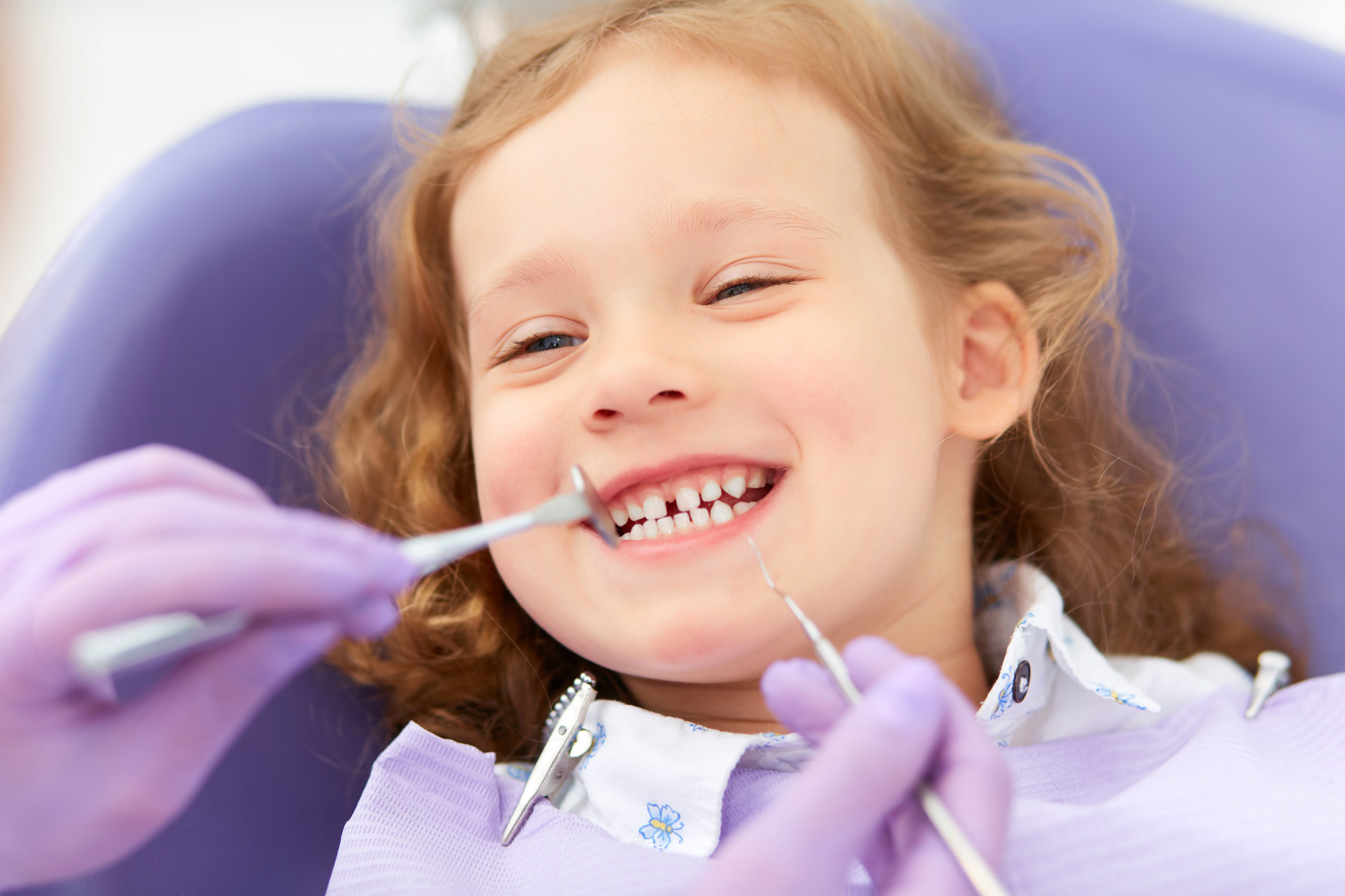What Is a Dental Emergency in Children?
A fall or other sudden accident can cause an unanticipated emergency pediatric dental care. Infections or tooth decay could be the cause of other conditions. Parents and kids may find these situations unsettling, particularly if a tooth is completely knocked out or breaks. The chance of irreversible tooth loss or damage can be reduced by understanding how to respond after this kind of crisis and when to seek medical attention.
Common types of dental crises in children
newborn tooth infection
A tooth infection or abscess can occur from improper or infrequent cleaning of your children’s infant teeth. It may become challenging for your youngster to chew or speak as a result of pus-filled pockets forming around the tooth. Treatment should be performed as soon as possible because the infection might spread throughout the body.
Depending on where the infected tooth is located, children with infected baby teeth may have swelling in their jaw or cheek. Additionally, they may have a low-grade temperature. Pain might be decreased by briefly applying ice packs to the affected area. Abscesses that are visible will probably hurt to the touch. Trying to handle them might just spread more bacteria. Encourage kids to avoid putting their fingers in their mouths or near the diseased tooth.
Fractured teeth
When playing, kids frequently break their teeth from falling off their bikes onto the sidewalk, from trees and from jungle gyms. A broken tooth may bleed, and it might not always be obvious where the break is. It is advisable to seek treatment as soon as possible for this kind of emergency pediatric dental care since it may lead to infection.
Before receiving treatment, a fractured tooth may shatter into one or more fragments. In such a case, the tooth’s chances of survival may be increased by keeping the fractured portions as intact as feasible. There is no need to fear if a piece breaks off and cannot be recovered. It may happen frequently when there is a fracture. Place a moist piece of gauze there to reduce this possibility.
Put a moist piece of gauze over the damaged tooth and have the youngster apply light pressure to keep the tooth together in order to reduce the risk.
Damaged or missing teeth for good
Some adult teeth in older children may have been knocked loose or damaged. This kind of issue can be quite dangerous since it probably calls for dental replacement. When an adult tooth is knocked out, it can be saved in a few different methods.
When travelling to the dentist, remember to:
Using gauze, hold the tooth in the empty socket.
To keep the tooth’s roots from drying out, keep it in a paper cup and add milk.
To reduce the chance of infection, keep your hands off the tooth.
Taking immediate action can mean the difference between having to get an implant or artificial crown and being able to save a fractured adult tooth.
For emergency pediatric dental care , give us a call.
An emergency involving pediatric dentistry can occur at any time, so being ready to respond can help kids calm. Have our contact details handy so you can give us a call in the event of an emergency. The greater your child’s tooth’s chance of survival, the quicker you react to an emergency.
What does a dental emergency entail?
It can be challenging to determine whether a dental issue is actually an emergency requiring immediate care or if it can wait. Making this choice can be particularly difficult on the weekends or after work, when visiting a doctor or dentist frequently experiences more fees and inconvenience.
The following issues are dental emergencies that need to be attended to right away: extreme bleeding, abscesses, gum swelling, jaw injuries, dislodged or broken teeth, and excruciating pain. Give us a call and enquire about whether the youngster has to be brought in if the issue is still unclear.
What to do in case of emergency pediatric dental care
Don’t panic, but move quickly. If a tooth gets damaged or knocked loose, pick it up and give it a quick wash. Never grasp it by the roots. Try to replace the tooth in its socket as gently as possible. If this isn’t possible, take the tooth to the dentist and put it in milk. It is advisable to bring the missing tooth — even if it is a baby tooth, which is not permanent.
Ibuprofen is a fantastic option for painful issues. Aspirin should be avoided as it may increase bleeding. Allow the kid to rinse their mouth with warm water and, if required, use a cool compress. To stop any bleeding, apply mild pressure with some gauze.
Prevention of emergency dental care
Dental issues are unpleasant for anybody to deal with and can be particularly upsetting for kids. Later on, a great deal of pain and inconvenience can be avoided by taking the necessary preventive steps to lower the likelihood of a dental emergency.
When your kids participate in sports or other potentially harmful activities, be sure they’re wearing on mouth guards and other appropriate safety gear. Another crucial measure in protecting children’s teeth from harm is routine dental cleanings. Dental decay can be avoided and enamel strength maintained with regular cleaning. When performing a cleaning, a dentist may also identify possible issues before they worsen.
In summary
Emergencies in pediatrics dentistry can happen quickly, thus responding quickly is essential. Assess the circumstances, hold onto any loose teeth, and give the dentist a call right away. By being proactive, emergencies can be avoided before they arise.
FAQs
What dental emergency does a child have?
- Injury, excruciating toothache, hemorrhage, or oedema.
What should I do in the event that my child has an urgent dental issue?
- Make quick contact with an emergency room or paediatric dentist.
How may dental emergencies in kids be avoided?
- Consistent examinations, good dental hygiene, and safety measures.

